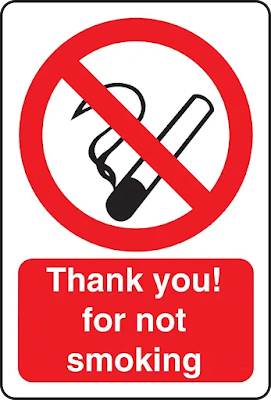“Clearing the Air: The Importance of Smoke-Free Laboratories”!

Why we should not smoke in a laboratory!
Smoking is a popular addiction that many people have, but when it happens in specific places, it may be tremendously harmful and even fatal. One such work is a laboratory, which frequently contains chemicals that are combustible. Smoke in a lab not only is a serious threat to colleagues, but it can also spoil significant research & experimentation. The explanations why smoking shouldn’t be permitted in a laboratory will be discussed in this article.

Fire Hazard
The fact that smoking creates a major fire risk makes it evident why it is not a good idea in a laboratory. Several chemicals used in labs are extremely flammable and are easily ignited by even the tiniest sparks or embers from a cigarette. Even if the smoker takes precautions, the smoke itself may be enough to set combustible substances or other laboratory items on fire. In itself, tight no-smoking rules are in place in many laboratories to avoid accidents of this nature.

Contamination Risk
In addition to the fire hazard, smoking in a laboratory can also pose a contamination risk. The smoke from a cigarette contains a variety of harmful chemicals that can easily cling to surfaces and materials in the laboratory. This can include research equipment, samples, and even the air itself. When these contaminants come into contact with important research & experiments, they can easily compromise the results or even render them unusable. This can have significant consequences for the laboratory and its staff, as well as the broader scientific community.

Health Risks
Smoking in a laboratory is not only dangerous for the laboratory itself, but it can also pose significant health risks to the smoker & others in the vicinity. The smoke from cigarettes is known to contain a variety of toxic & carcinogenic compounds, including carbon monoxide, formaldehyde, and benzene. These chemicals can easily be inhaled by others in the laboratory, including non-smokers, leading to respiratory issues, allergic reactions, and even cancer.

Compliance with Regulations
Furthermore, smoking in a lab is not only unsafe and hazardous, in addition, but it is also probably against the rules and regulations established by regulatory bodies. Many labs are accountable to Occupational Safety & Health Administration (OSHA) & Environmental Protection Agency (EPA) regulations, which frequently restrict smoking in places with dangerous goods around. If these rules are broken, there may be legal actions, fines & other repercussions.

In conclusion:
Smoking in a laboratory is a dangerous and ill-advised practice that can pose significant risks to the laboratory, its staff, and important research & experiments. Not only is it a fire hazard & contamination risk, but it can also have serious health consequences for everyone involved. It is crucial for laboratory staff & visitors to adhere to no-smoking policies and to prioritize safety at all times. By doing so, they can ensure a safe & healthy laboratory environment for all.

